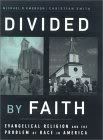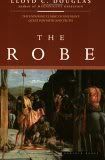In the IHT today, there is an opinion piece on the lessons of Dred Scott, a supreme court case in 1857 which shamefully concluded that blacks had "no rights which the white man was bound to respect". The authors point out that since then, while we may want to think the country has been moving continuously towards racial harmony and equality, the reality has been more of an ebb and flow.
Yes, blacks were granted the right to vote in 1868. Then, poll taxes and intimidation kept most from exercising that right, particularly in the South, before 1964. Today, one in 12 blacks has been stripped of the right to vote because of laws denying this basic privilege to people convicted of a felony. Increasing voter identification requirements recently passed in several states will likely further suppress the votes cast by people of color there.
Yes, Brown legally abolished the odious "separate but equal" schools. However, since the 1980s, schools for Latino and black students have grown more segregated as federal courts chipped away at the legal foundation supporting desegregation. This spring, the Supreme Court may even outlaw locally crafted voluntary measures designed to prevent segregation, rending the promise of the Brown ruling a fatal blow.
Whether or not there is agreement on issues of convicted felons voting, etc. as means of enforcing discrimination (and I would urge us all to think about the foundations of our system - whether or not we are 'personally responsible', we (the WASPy ones) definitely benefit.) I believe it is crucial to ruminate on what we as a society are doing - or not doing - to move the reality closer to the ideal most of us profess to share. After all,
The questions at the heart of the Dred Scott case - about citizenship, belonging and participation - remain unresolved. As we Americans stand at a crossroads, challenged by threats abroad and within, we, like the Supreme Court in 1857, risk being blinded by our own cultural assumptions. These threaten the admirable gains we have made during the past century and a half. We must not lose sight of the context that not only enabled the Dred Scott decision in 1857, but led far too many members of the public to view the decision as sensible and right.










0 comments:
Post a Comment